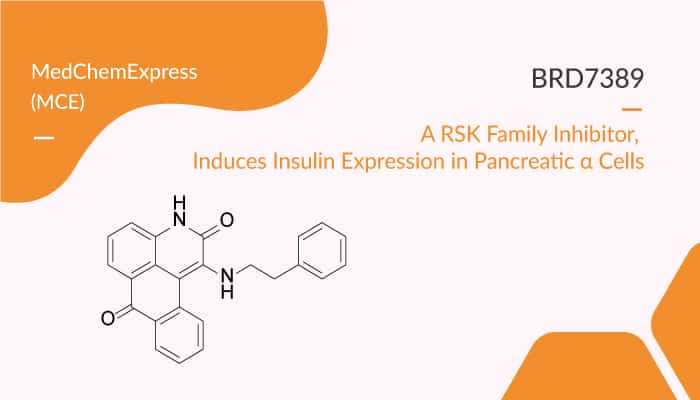Colon cancer is one of the leading causes of cancer deaths worldwide. Multiple genetic alterations may cause colon cancer. The p90 ribosomal S6 kinases (RSKs) are a group of serine/threonine kinases. RSKs regulate a wide range of target proteins, implicating RSKs in the control of cell cycle progression, protein synthesis, and cell proliferation. The inhibition of RSKs suppresses the proliferation of human breast and prostate cancer cells. Especially, BRD7389 inhibits the RSK family. RSK regulates many substrates involved in cell survival, growth, and proliferation. Furthermore, RSK also associates with multiple cancer types.

In this study, researchers identified BRD7389 by high-content screening. In particular, BRD7389 is an RSK specific inhibitor. BRD7389 almost completely blocks Carbachol-stimulated cell proliferation. However, BRD7389 has little effect on the basal level of proliferation. BRD7389 causes α-cells to adopt several morphological and gene expression features of a β-cell state. BRD7389 also increases the endocrine cell content and function of donor human pancreatic islets in culture. Moreover, BRD7389 significantly up-regulates the expression of Pdx1. Pdx1 is a master regulatory transcription factor that specifies pancreatic progenitors and directly activates the insulin promoter. BRD7389 also is an inducer of insulin expression in pancreatic alpha-cells.
Besides, RSK is a major contributor to the triple-negative breast cancer (TNBC) metastatic program and provides preclinical proof-of-concept for the efficacy of the novel SL0101 analog in vivo.
Together, BRD7389 is an inhibitor of RSK1, RSK2, and RSK3. RSKs play an important role in cancer cell proliferation and indicate that RSKs are potential targets for cancer therapy.